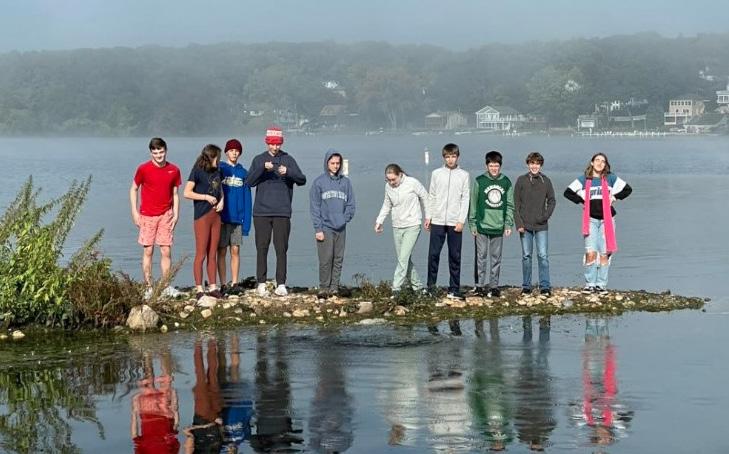
2 minute read
From the Ministers
Rev. Kelly Asprooth-Jackson, Co-Senior Minister
There is a Jewish story—I've found it retold many different ways in many difference places, but my telling of it here owes the most to a version by author Rabbi Edward Feinstein. Once, a Rabbi put the question to his students: how can one know for certain that the night has ended and the day has begun? This was a question with serious implications—in Jewish practice, there are certain prayers to be said during the nighttime, and others that are obligatory in the morning. Knowing when the window for one has closed and the opportunity for the next has begin is no small matter.
Advertisement
The first student to answer said, "I know that the night has ended when I can look out my door and distinguish where my field ends and my neighbor's field begins." But the Rabbi shook his head at this.
The next student suggested, "I know that the day has begun when I can stand in the road, spin around, and know immediately whether the house I'm facing is mine or my neighbor's." But the Rabbi frowned at this reply as well.
The third student offered, "I know that night has become day when I can stand at the edge of the yard and tell one animal from another with certainty—a cow from a horse, a goat from a lamb." At this answer, the Rabbi began to cry.
"No, no. You only divide! You separate your field from another's, your house from another's, one animal from another! Is this all that I have taught you: division? The drawing of lines between this and that, yours and mine? Is this all you believe the Holy One has given you your senses for? So that you might cut apart the world more cleanly?" As the Rabbi lamented on so, the most shy and humble of his students spoke thus: "When I can look upon the face of a person beside me, and see that the person is my sister, my brother, my friend—then, and only then, do I know that the night has given way to day." And at this, the Rabbi nodded, and smiled.
Our spiritual theme for this month is change, which comes in many sizes and forms; sometimes daily, sometimes once in a lifetime; sometimes gradually, sometimes all at once. But as important as the project of creating change—or simply navigating it—is, it matters just as much how we perceive it. How we know when the change has taken place dictates the meaning we ascribe to it.
As part of our work as your Co-Senior Ministers, Rev. Kelly Crocker and I each have areas where we take the lead, others where we act in support, and still others where we mainly act together. (If you're curious to see some of these specifics, you can find more information on the FUS website at https://fusmadison.org/welcome/our-ministers/.) We each have our tastes and preferences, and there's a lot to do. But in deciding how to share that work (and re-deciding in the future; these roles are not etched in stone), we view this not as a process of division, but of recognition— the basis for collaboration rather than an assignment of respective spheres. We hope that you will view it that way, too.







